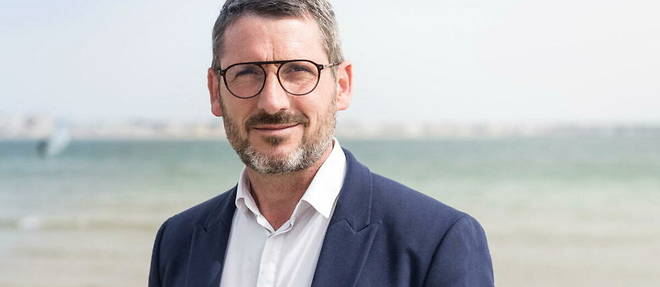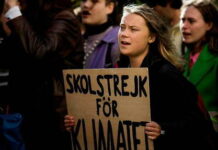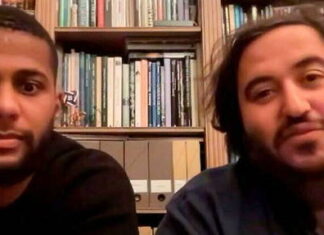A mandate, and then leaves. Matthieu Orphelin, elected deputy in 2017 under the LREM label, takes his political bow. In five years, he has nevertheless established himself as a figure of the ecological fight in the Assembly, leaving the majority in passing to found a new parliamentary group. In a book published on the eve of the legislative elections, When will ecology be big? What remains to be done (ed. Rue de l’échiquier), the Angevin takes stock of his mandate: the frustrations, the pressures of the lobbies and the government on the legislative work, the battles won and, above all, the battles that his successors have yet to fight. Maintenance.
The Point: You have made the decision not to run for a second term as an MP and have given up your mandate as a regional councillor. Fed up with politics?
Matthieu Orphelin: No, not at all! I loved this term, it was five years of intense fighting. We were not numerous to carry the ecology. Politics, I like that. I hesitated to represent myself. Last year, I had the best score for ecologists in the regional elections, the figures for my constituency were very encouraging… But I want to lead my fights differently, to see the problems from another angle, and to find a militant side that I miss a little here. Being an MP is an honor, but it’s also a lot of work, people call out to me all the time. At first, I wanted to be the good student; I did a burnout. It’s only over the past two years that I have accepted to take more pleasure in what I was doing. Besides, I’m 49 years old. If I did a second term, I would have 54, and not sure that I will ever work again. I don’t want to become a professional politician. So I made the decision in January not to run again.
Some of your colleagues believe that they had little power in the Assembly. Are MPs still useful?
There are many who stop saying that it is useless. I register in false. Of course, we are sometimes angry to see that the government is not going in the right direction. Of course, I would have liked it to go faster. Of course, I had a lot of defeats, but here we won a lot. And above all, each fight, we carried it. We still have a lot to gain, but this is the best place to take political things to the national level.
The executive has too often seen MPs as obstacles to rapid legislation.
The Parliament sometimes resembles a registration chamber for government texts…
This five-year term has further accentuated this imbalance which is a constant in the Fifth Republic, with an executive that is too strong and a legislative power that is less well regarded. There was this desire for ownership from the start. I argued with Richard Ferrand (president of the LREM group in the Assembly, at the time, editor’s note) from the first group meeting because he wanted to include in our rules the fact of always voting like the group. Voting cannot be imperative! These old PS were marked by the episode of the slingers under Hollande, but I also think that the executive too often saw the deputies like obstacles to legislate quickly, whereas the parliamentary time is necessary. There should have been more listening from the start. They wanted to do politics from Paris, when they had a formidable network of neurons connected to their territory to bring up problems. It is necessary to ensure, for the five-year term which begins, to strengthen the Parliament and to make understand to the ministers that it is not them who vote the laws.
Have you been pressured by the government to pass any legislation?
Yes of course. The first pressures began in early 2018, with the agriculture and food law, and the asylum and immigration law. On the second, I remember that Gérard Collomb (at the time Minister of the Interior, editor’s note) made me come to his office. I immediately understood that the atmosphere would be terrible. He said to me, “Do you want more undocumented people? Where do you want them put? In Maine-et-Loire? (his department, Editor’s note). He makes me understand that he is going to ruin my political career. Then Richard Ferrand has this line: “Abstain, venial sin, vote against, mortal sin. “You have to know how to handle the pressure. Some MPs gave in too easily, forgetting the general interest. By wanting to be a good student, one is not necessarily a good deputy.
On ecology, Macron and the government tend to look in the rear view mirror and be satisfied when they do better than the previous government.
In your book, you also mention the strong pressure from lobbies in the Assembly…
I was a lobbyist for the planet when I was in NGOs, so I don’t fall out of my chair. But we are rediscovering the strength and organization of these private interest lobbies. Not a day goes by during the first years of office without a lobbying firm calling you to offer you an appointment with an interest holder. I don’t have any problem with it, you have to hear all the points of view. But sometimes that goes too far. I kicked out a lobbyist who actually used the Assembly layout for the amendments he proposed to me! During the mandate, when they realized that everything was decided by the executive, we saw the lobbyists focus on the ministries. We need more transparency.
That’s to say ?
I kept the list of lobbyists I met and I made it public. I had 1,250 appointments. I had tabled a bill to make these meetings public, whether for deputies, ministers or their advisers. The European Parliament has put this in place for two years, it is going very well.
Like Yannick Jadot, would you qualify the quinquennium that is ending as “quinquennium of climate inaction” or do you, on the contrary, see great progress on this fight which is dear to you?
You can’t say that nothing was done, but it wasn’t the right pace. The main problem is that the executive and the majority have never come up to the level of what should be done. They tend to look in the rear view mirror and be satisfied when they do better than the previous government. Luckily Macron went further than Hollande, and Hollande went further than Sarkozy. Everything is accelerating so quickly on these issues, but they have too often been satisfied with a halfway transition, small steps, when this should be the red thread of a new model of society and economy. That’s why I left the majority.
During the between-two-rounds, Emmanuel Macron promised that “this five-year term will be ecological or it will not be”. Has he finally realized the ecological emergency?
To say that at that time is not insignificant, it is a political strategy. But anything that goes the right way, I take it. A Prime Minister to lead the ecological transition is positive. Jean Castex and Édouard Philippe discovered ecology the day of their appointment. But, for the new government in the first weeks, the signals are not going in the right direction. Decisions harmful to biodiversity have been taken, on the mowing of fallow land, on the protection of the oceans… Big speeches are not enough! We need strong actions, and quickly.
The advisers of the ministry have voluntarily erased the little impact of the climate law.
The Prime Minister in charge of ecological planning, accompanied by a Minister for Ecological Transition and a Minister for Energy Transition, isn’t that a good signal?
Piloting by the Prime Minister is good. It takes real planning, not just a defense council that meets every three months allowing for ad hoc progress as under the last five-year term. For the moment, there is a delegate, Antoine Peillon, who has been appointed. But it needs a real task force around it, resources, month-by-month monitoring to see if the policies are strong enough or if we need to speed up. On the other hand, having cut ecology and energy into two ministries is not going in the right direction, in my opinion. All the scientists tell us that these two subjects must be dealt with together for the climate and for biodiversity. This organization existed before the Grenelle of the environment in 2007, it did not work. It was always energy that had the last word and subjects on biodiversity were not taken into account.
You also say, in your book, that the government made up the impact study of the climate and resilience law…
The advisers of the ministry voluntarily erased the little impact of the law. If I hadn’t been head of the economy department at Ademe before, if I hadn’t had a deviant passion for calculating tons of CO2 and if I hadn’t had an engineer on my team who passed the day reading that again, I might never have noticed. The firm had the technicians cross out the figures to embellish them. They then commissioned a study from a high-speed consulting firm to contradict me… which came to the same conclusions as me. It’s serious ! It’s one thing not to do enough, but then you have to accept that you’re not doing enough.
The French, who cited the environment among their priorities during the campaign, yet again voted for Emmanuel Macron…
I’m not sure that the people who vote Macron vote primarily for the environment. By its small steps, its difficulties in engaging and being consistent on these subjects, the presidential majority is struggling to convince that ecology is its priority. In a way, the president assumes in his program that ecology is only one policy among others, it is not the cornerstone of his action.
Yannick Jadot, the environmental candidate, won only 4.6% of the vote…
On the side of environmentalists, there is a question that does not date from the presidential election. In the regionals, I lost 100,000 votes, and there are 400,000 young people who did not vote in my region. Yet they are the most sensitive to ecology. As long as you do not address this disaffection of young people for politics, it will not work. I say this in all friendship, because they are fellow travelers. Before being fired (because of the Hulot affair, editor’s note), I had already said that I was leaving Yannick Jadot’s campaign, because I found that this youth priority was not sufficiently focused.
Beyond this question of young people, aren’t the Greens paying for this image of punitive ecology that sticks to their skin?
This is often what emerges, whereas on the contrary, ecology is good for better living and for purchasing power. It is these discourses, on the ecology of solutions, that must be better conveyed. Punitive ecology has been theorized by its opponents; avoid exposing yourself to criticism and focus on improving people’s lives. There is a problem in the media, when we see press leaders opening their pages to climatosceptics in 2022.
Can the alliance of environmentalists with the left in Nupes, which you were already calling for during the presidential election, be a solution?
I realized very quickly that it was that or defeat. I had initiatives of secret meetings with each other, and I supported the popular primary. Despite Mélenchon’s helpful voting momentum in recent weeks, there were no leftist or environmentalist candidates in the second round. For the legislative elections, the Nupes is going in the right direction and seems to have an echo. Unity also means going beyond the party apparatchiks and their small-shop logic.
Can Nupes hold out for five years? The campaign is not over, and we already feel that some are taking it upon themselves…
I’m quitting politics so I’m going to refrain from commenting too much on it! I note that it was done in pain after the elections, but it is done. It was a strong expectation. Now it’s up to them to show that with sometimes deep differences, they manage to build something. It can’t just be an electoral stunt. They owe it to voters. We will have to invent this common mode of operation, with an intergroup. It can’t just be the feathered leaders of each party meeting once a week to sweep the agenda, it needs joint construction, debates and amendments. This will be one of the interesting points of this mandate. Not to mention the new balance of power that could be installed on the climate and biodiversity.


















